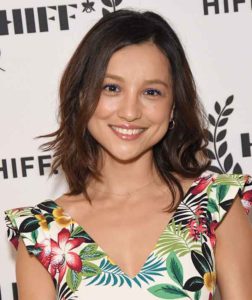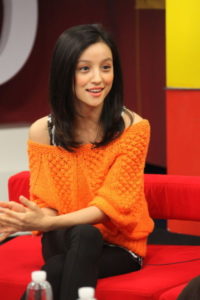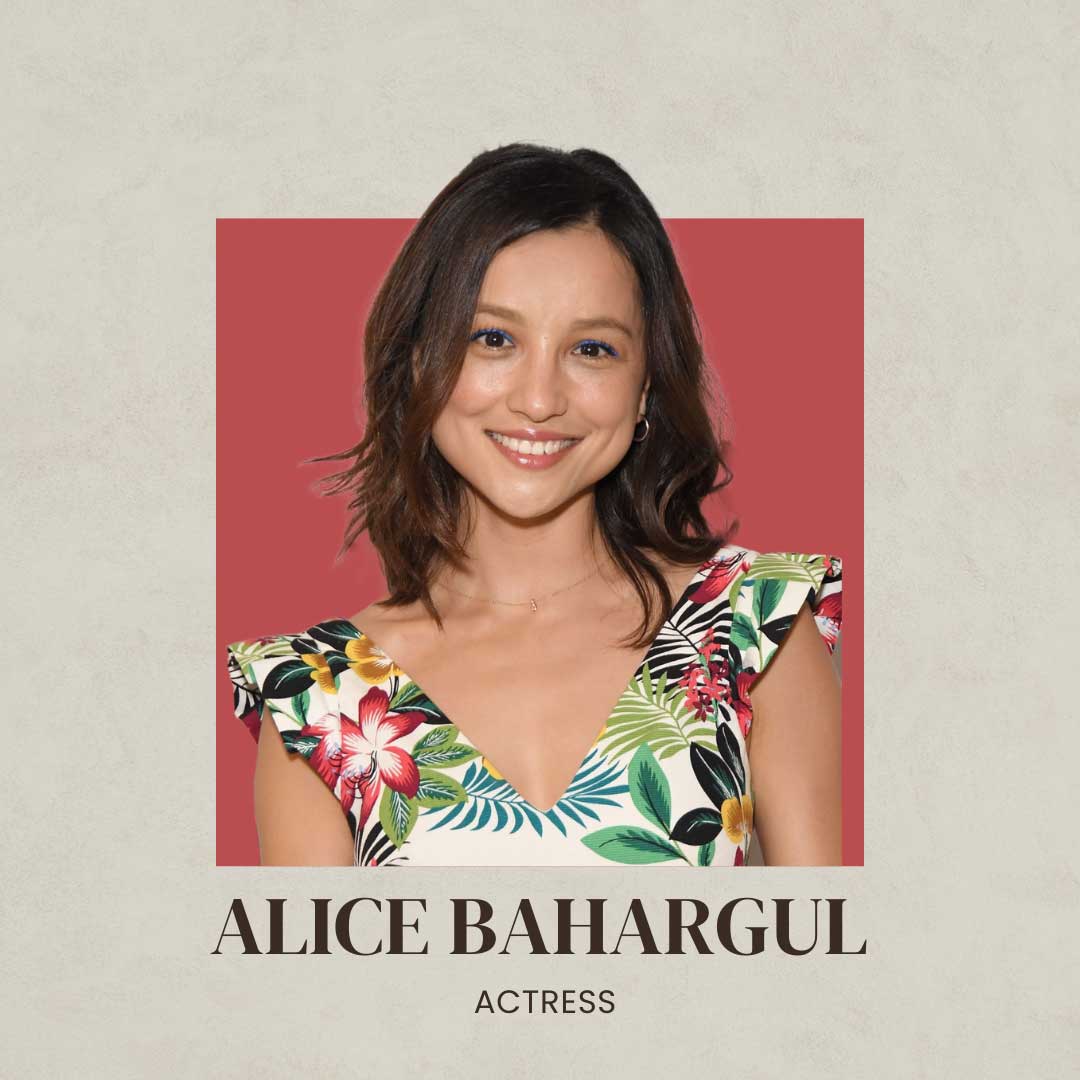CATEGORIES
Breaking Stereotypes | People We Admire | Social Impact | Women EmpowermentOverview:
- Alice’s upbringing in Urumqi, China shaped her into a curious person who valued experiences beyond conventional city life.
- Her passion for performing and promoting Uyghur culture led her to success in China’s Got Talent, eventually becoming the first Uyghur actress in China’s box office.
- Seeking greater opportunities, she moved to Los Angeles in 2013, overcoming language barriers and cultural differences to pursue her Hollywood career.
- Her biggest achievement is her courage to pursue her dreams and learn from her mistakes.
- She advises youth to focus on the journey, work daily on their craft, and create their own opportunities.
1. What was your upbringing like in Urumqi, China, and how did it influence your character?
Urumqi’s population is majorly composed of the Uyghur. The city I grew up in was not much different from other big cities. But the interesting part was that every summer or winter break I would visit my grandmother. She lived four hours outside the city, in the countryside with beautiful surroundings. There, I rode horses and went hunting with my uncles. I grew up very curious and tough, more on the tomboy side. It expanded my horizons as I did not get stuck in a little city, learning in school. I wasn’t the typical kid either. Children my age were playing with Barbies or dolls. This is not to say I wouldn’t have done the same if I had been given the chance. I spent my time in nature and I believe it shaped me into becoming the curious person I am today.
2. You started your career at a young age. Can you tell us more about that journey?
When I was in high school, I was always curious about the culture and life outside my hometown. I wanted to introduce our culture to the world. I loved being in front of everyone and performing. I was passionate about dancing and singing from a young age. But my hometown, which was culturally Muslim, was rather conservative. It was always about: “How is that going to look like to your family?” but that never really stopped me.
Although there are so many celebrities in Chinese mainstream media, there was no representation of Uyghurs, Tibetans, or Mongolians. There’s such a rich culture in China, but the minorities aren’t represented as much. I was always proud of introducing my culture to the world, and in 2009, I got my college invitation to a different city. It was in Sichuan, which was a 4-hour flight trip from Urumqi, in another province of China. The thought of me leaving town freaked out my parents, but I told them this was my journey and the path I wanted to take.

In my second year of college, I participated in China’s Got Talent. My goal at the time was to have fun in the competition and introduce Uyghur culture to the world. At the beginning of the competition, winning was never my goal. However, I ended up being in the top five. As much as my family and friends were supportive of me, they questioned what lay ahead. The people around me tried to draw the line of my life. They told me since I was a woman, I should finish college, get a job, and get married. But that’s not the life I wanted for myself.
In 2009, I signed my first three movies as a lead in China and launched my entertainment career. I was the first Uyghur actress at the box office and movie theaters had my face on their posters. Yet, I was hungry for more. That was until one of the producers of the film I was in told me that I could go to Los Angeles. I didn’t quite speak English at the time, so the decision to buy a one-way ticket to America in 2013 made me pretty nervous. But I stuck with it and dropped my career in China to start my journey in Hollywood at 22 years old.
3. How do you think your gender affected your work in the film industry? Were there any challenges you faced solely because you were a woman?
Regardless of gender, we always face challenges. But the only difference is that the media never asks a man certain questions like how they became successful. Women and men are mentally equal. We’re doing the same job, and when a man navigates their career, I can do it too as a woman. The only thing setting us apart is our biological bodies. Sometimes our bodies don’t allow us to do certain things men do.
Unrelated to my gender, a challenge for me was the language barrier and cultural differences. But these elements only made me stronger. Whatever a man can handle, I can handle too, maybe even better. I think women should embrace their femininity. We’re not weak just because we’re women. We should always challenge ourselves to be strong. Women can handle being pregnant and popping out another human being from their bodies. We get a few days off, then it’s back to business. What kind of human species can do that other than women?

4. As a public figure, how do you use your voice or platform to drive social impact?
I always ask myself what we are missing as humans. Why are we doing what we are doing and what are we missing? Yet as a filmmaker, I want my audience to escape from the brutal reality for an hour or two. I want them to see the beauty of life, and send a message that life is beautiful. If we can see it through a lens, we can understand that there is still so much beauty in human nature and the world. We have to open our eyes, hearts, and minds to see and connect with other humans.
Yes, there is an imbalance in society—there’s systemic racism. But let’s focus on the beauty of life as a society. Sometimes life’s challenges and difficulties make things complicated. So much so that we forget about the foundation of life, and how beautiful it is to coexist with different animals and humans. We have the power to change our perspectives on life. I just try to wake up every morning grateful for having a roof over my head, living in a beautiful city, and having water and food. When you see it that way, you feel like the luckiest person alive.
5. What do you think is your biggest achievement to date, whether professionally or personally?
I think my biggest achievement was having enough courage to take the leap. Flying to America for my career not even knowing a word in English. When I look back I feel like I can laugh about it. I don’t feel like it’s a mistake or see it as something shameful. I’m human after all, and making mistakes is the only way to move forward. We cannot get better or learn anything without mistakes. You don’t learn from your accomplishments, you learn from the fear of things you did wrong. You learn by getting back up on your feet and looking at the mistakes you made and acknowledging them.
So, my biggest achievement, I would say, is having learned this. Having experienced and lived this full life the best I can. One day when I’m older and my grandchildren ask, “Why did you do this or that?” I can say “Because I wanted it”.

6. What are some upcoming projects you are looking forward to?
I’m excited about a project I wrote that I will direct and start shooting in June. I always say that the show is ‘Sex And The City’ meets the play ‘Bachelorette’. It’s about four women from around the world, experiencing dating life in Los Angeles. One night, they go out and find themselves in an extraordinary situation as ordinary people. They have to figure out how to deal with it. It’s a short film concept, but I am turning it into a mini TV series.
Another project I’ve pitched is about a blind songwriter trying to escape her rich, overprotective mother. I am also working on a historic sci-fi piece. It’s about a novelist who writes about Asian history and finds himself traveling back in time. I’m still developing that one.
“Falling In Love In Broken English” is another one of my projects which is inspired by true events. It’s about an Uyghur actress who leaves Beijing for California to pursue her dream of becoming an international star. She falls in love with a conservative man despite language barriers and family pressure, but soon realizes she’s losing sight of herself. So I’m working on the three acts to format them into a movie. I’m excited for all of these.

7. What advice would you give the youth, especially those aspiring to follow your path?
This industry is not tailored for you to succeed, especially Hollywood. It is tailored to say no and try to stop you. You hear a million ‘no’s every day. The struggle is hard, no matter your background, even if you were born and raised in Los Angeles. Even the people from here whose families have strong industry connections still struggle.
Don’t put too much pressure on the results. Just enjoy the journey and work on your craft every day. You have to be self-motivated; everyone here is because no one else motivates you. There’s no one to tell you “You got this” or tell you what to do. Everyone here is busy doing their own thing.
You just have to do whatever you want to. There’s no room for excuses. “I want to be a filmmaker, but I don’t have the equipment.” You have your phone camera you can shoot with. There’s YouTube, Google, and so many other resources that we can utilize. The only thing that can stop you is your mind. No one is perfect, we all have moments of self-doubt. But at the end of the day, it doesn’t matter what other people think. You have to wake up in the morning, look in the mirror, and make your own opportunities. You have to like what you see in the mirror and give yourself some love and credit. If you can’t do that, then it will be hard. So delete the word ‘perfect’ from your dictionary because it doesn’t exist.
Conclusion:
Alice Rehemutula is the personification of big dreams and high ambitions. Creating her own opportunities and taking control of her own life, Alice jump-started her career at a young age. Taking part in China’s Got Talent propelled her into the film industry, where she eventually flew to America to achieve her goals. To Alice, making mistakes and learning from them is crucial for success as they help you navigate life’s challenges. At the end of the day, Alice believes that self-love and self-motivation are the most important things in life.


